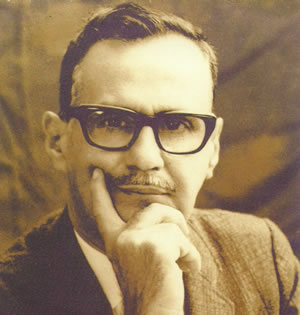Mauro Mota (1911-1984)

This slender and well-dressed gentleman was the Director of the Gilberto Freyre Institute in Recife. Of course Gilberto was nowhere to be seen.
When I pay a visit to such an institution I never know what to expect. Since it was featured as a center for social science research I knew I would get some timely publications.
Sure enough. As soon as I stepped through the door, Mauro handed me a book, by him of course. Entitled O cangaceiro, it explained how the cashew tree could save the destitute Northeast. First, its shade protected you from the beating sun. Second, its delicious fruit could cure your hunger.
Professor Mota was extremely hospitable. Knowing I was from a distant New England university, he insisted that I deliver a lecture to his learned colleagues. It was to be scheduled for the following day. Since my knowledge of local fruits was limited (this was before I read his book), I sat down in my room and in a panic I scribbled some translations about the importance of international understanding among academics of different nationalities.
When I saw Mauro in the office the next day he mentioned nary a word about my upcoming lecture. Nor did any of his colleagues. I was off the hook. No lecture in broken Portuguese.
Moral: not all thinking in Brazil is sequential.
Further Readings
Mota, Mauro. O cajueiro nordestino. Rio de Janeiro: Ministério da Educação e Cultura, Serviço de Documentação, 1956.
Mota, Mauro. Os bichos na fala da gente. Recife: Instituto Joaquim Nabuco de Pesquisas Sociais, 1969.
Mota, Mauro. Antologia em verso e prosa. Rio de Janeiro: Livraria J. Olympio Editora, 1982.
Mauro Mota was born in Recife, Pernambuco. After graduating from Recife’s School of Law in 1937, he taught as professor of the Geography of Brazil for Pernambuco’s Institute of Education. He also devoted his efforts to journalism, writing for Correio da Manhã and Diário de Notícias, as well as serving as editor-in-chief and director of Diario de Pernambuco. In 1952, he published Elegias, an anthology of poems. From 1956 to 1971, Mota worked as director of the Public Archives of Pernambuco and later became member of the Joaquim Nabuco Foundation. In 1970, he was granted membership to the Brazilian Academy of Letters.

